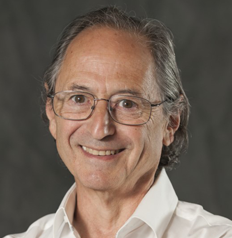페이지 정보

본문
Michael Levitt
Nobel Prize laureate in Chemistry 2013
Michael Levitt is a professor at the Stanford School of Medicine. He received the Nobel Prize for developing multiscale models for complex chemical systems.
Michael Levitt is the Robert W. and Vivian K. Cahill Professor of Cancer Research in the department of structural biology at Stanford School of Medicine. He holds a courtesy appointment in the department of computer science and is a founding member of BioX that brings together experts in biology, medicine, chemistry, physics, and engineering. Born in South Africa where he lived until he was 16, he studied physics in London and structural biology in Cambridge.
He first came to Israel in 1967 for a year of pre-doctoral study with Shneior Lifson at the Weizmann Institute. Before moving to Stanford’s department of structural biology in 1987, he held academic positions in the Laboratory of Molecular Biology in Cambridge (1972-1979) and the department of chemical physics at the Weizmann Institute (1980-1987). He has been a member of the Royal Society since 2001 and US National Academy of Science since 2002.
As one of the first computational biologists, he has major contributions in four areas: multi-scale methodology, analysis of protein and nucleic acid structure, molecular dynamics, and ab initio protein folding. His interactions with experimentalists lead to the Jack-Levitt method for refining coordinates against X-ray data.
In structural analysis, he co-discovered the four protein fold classes and the packing geometry of secondary structure segments. His early calculations of energies and forces paved the way for protein molecular dynamics simulations; they led to realistic simulations in solution and a widely adopted approach to protein unfolding. He introduced simplified representations of proteins for simulation of protein folding. He remains an active computer programmer, a craft skill that he is particularly proud of.
In 2013 he shared the 2013 Nobel Prize in Chemistry with Martin Karplus of the University of Strasbourg in France and Harvard University, and Arieh Warshel of the University of Southern California.
More about Michael Levitt and the 2013 Nobel Prize in Chemistry
















